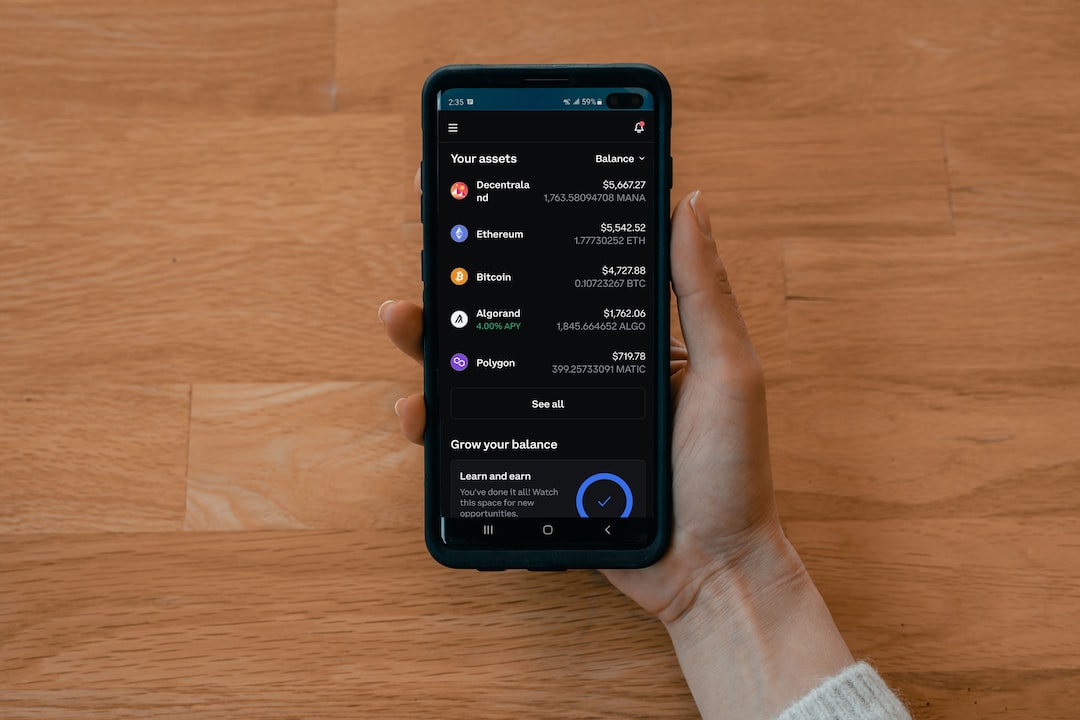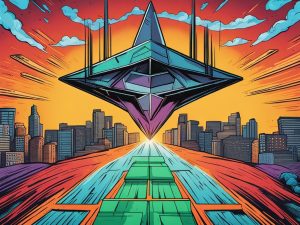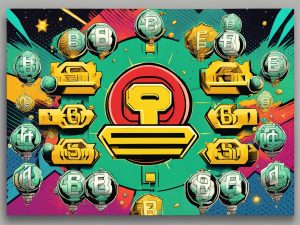Cardano’s Smart Contract Platform: A Game-Changer in Decentralized Applications
If you have been following the world of cryptocurrencies, you may have heard about Cardano. But do you know what makes Cardano stand out from other blockchain platforms? In this article, we will explore Cardano’s smart contract platform and how it is revolutionizing decentralized applications.
Cardano is more than just a cryptocurrency. It is a blockchain platform that aims to provide a secure and scalable infrastructure for the development of decentralized applications (dApps). The platform utilizes a unique technology called the Ouroboros protocol, which is the first proof-of-stake blockchain protocol to be mathematically proven secure.
But what exactly are smart contracts? Smart contracts are self-executing contracts with the terms of the agreement directly written into lines of code. These contracts automatically execute when the conditions specified in the code are met. They eliminate the need for intermediaries, reduce costs, and increase transparency and trust in transactions.
Cardano’s smart contract platform, known as the Cardano Virtual Machine (CVM), enables developers to build and run smart contracts on the blockchain. The CVM is designed to be highly secure and transparent, ensuring the integrity of the applications built on top of it.
One of the key features of Cardano’s smart contract platform is its modularity. Unlike other blockchain platforms, Cardano allows for the seamless integration of different components and protocols. This modularity allows developers to easily upgrade and evolve their decentralized applications without disrupting the entire network.
Furthermore, Cardano introduces a novel approach to smart contract development known as formal verification. Formal verification is a mathematical technique that allows for the verification of the correctness and security of software. By applying formal verification to smart contracts, Cardano ensures that the applications running on its platform are free from bugs and vulnerabilities.
Cardano’s smart contract platform also addresses the issue of scalability, which has been a major challenge for blockchain platforms. The platform utilizes a layered architecture, which separates the computational layer from the settlement layer. This separation allows for the parallel processing of transactions, significantly increasing the scalability of the network.
Moreover, Cardano is focused on sustainability and environmental friendliness. Unlike other blockchain platforms that consume massive amounts of energy, Cardano uses a proof-of-stake consensus mechanism, which consumes significantly less energy. This makes Cardano a more sustainable and environmentally friendly choice for building decentralized applications.
The potential applications of Cardano’s smart contract platform are vast. It can be used for financial services, supply chain management, healthcare, voting systems, and much more. With its secure and scalable infrastructure, Cardano is poised to revolutionize various industries and bring about a new era of decentralized applications.
Frequently Asked Questions
1. Can I develop my own decentralized application on Cardano’s smart contract platform?
Yes, Cardano provides a developer-friendly environment for building decentralized applications. You can leverage the platform’s modularity and formal verification capabilities to create your own dApps.
2. Is Cardano’s smart contract platform secure?
Absolutely! Cardano’s smart contract platform utilizes formal verification techniques to ensure the correctness and security of the applications running on it. The Ouroboros protocol also adds an extra layer of security by being mathematically proven secure.
3. How scalable is Cardano’s smart contract platform?
Cardano’s layered architecture allows for the parallel processing of transactions, significantly increasing the scalability of the network. This ensures that the platform can handle a high volume of transactions without compromising performance.
4. What makes Cardano a sustainable choice for building decentralized applications?
Cardano uses a proof-of-stake consensus mechanism, which consumes significantly less energy compared to other platforms that use proof-of-work. This makes Cardano a more sustainable and environmentally friendly choice for developers.
5. Can Cardano’s smart contract platform be integrated with other blockchain platforms?
Yes, Cardano’s modular design allows for the seamless integration of different components and protocols. This means that it can be easily integrated with other blockchain platforms, expanding its capabilities and potential use cases.
In conclusion, Cardano’s smart contract platform is a game-changer in the world of decentralized applications. With its secure and scalable infrastructure, modularity, formal verification, and sustainability, Cardano is paving the way for the future of blockchain technology. Whether you are a developer looking to build your own dApp or an enthusiast exploring the world of cryptocurrencies, Cardano is definitely a platform worth keeping an eye on.





 By
By
 By
By
 By
By
 By
By
 By
By
 By
By